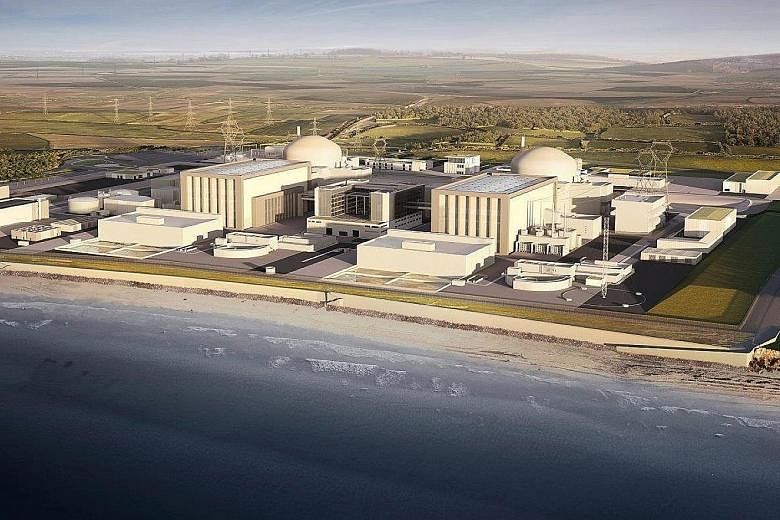LONDON • The British government cast doubt on the future of a controversial £18 billion (S$32 billion) project to build Britain's first nuclear power plant in more than 20 years, pledging to review the deal just hours after the board of France's state-run utility gave the go-ahead.
Britain's Business and Energy Secretary Greg Clark said late on Thursday that the government would carefully consider the project before deciding on it in "early autumn".
Critics have said the plan represents poor value for money for consumers, who will pay Electricite de France (EDF) billions of pounds in subsidies to operate the plant for 35 years.
Britain's decision to hold up the power plant follows a meeting between British Prime Minister Theresa May and her French counterpart Francois Hollande earlier this month where Mrs May was non-committal about the project, according to people present at the private talks. Her predecessor David Cameron had enthusiastically backed the project, arguing construction would create jobs and allow Britain to meet its carbon reduction goals.
Earlier on Thursday evening, French energy giant EDF's board had voted to sign contracts for the construction of two nuclear reactors at Hinkley Point in south-west England, a project that would take 10 years to build and eventually supply about 7 per cent of Britain's electricity.
"I have no doubt about the support of the British government led by Mrs May," EDF CEO Jean-Bernard Levy said yesterday. He referred to a recent statement by Britain's new Chancellor of the Exchequer, Mr Philip Hammond, backing the project.
A decision by Mrs May's government to back away from the project would mean abandoning Britain's policy of using nuclear stations to replace ageing reactors and ensure the country meets its commitments to cut emissions. It would also end the biggest Franco-British industrial project in a generation as Britain looks to reconfigure relationships with its continental neighbours after last month's vote to leave the European Union.
As Britain delays a decision on the project, EDF also faces opposition to the plant at home.
The financial risks were highlighted in March when former EDF chief financial officer Thomas Piquemal resigned because of concerns the company's balance sheet was too stretched to handle construction, despite the projected return once Hinkley is operational.
Mr Levy responded with a plan to sell €10 billion (S$15 billion) of assets by 2020 to help fund the project, and shareholders on Tuesday approved the sale of €4 billion of new shares by early 2017. The French government owns 85 per cent of EDF.
BLOOMBERG

